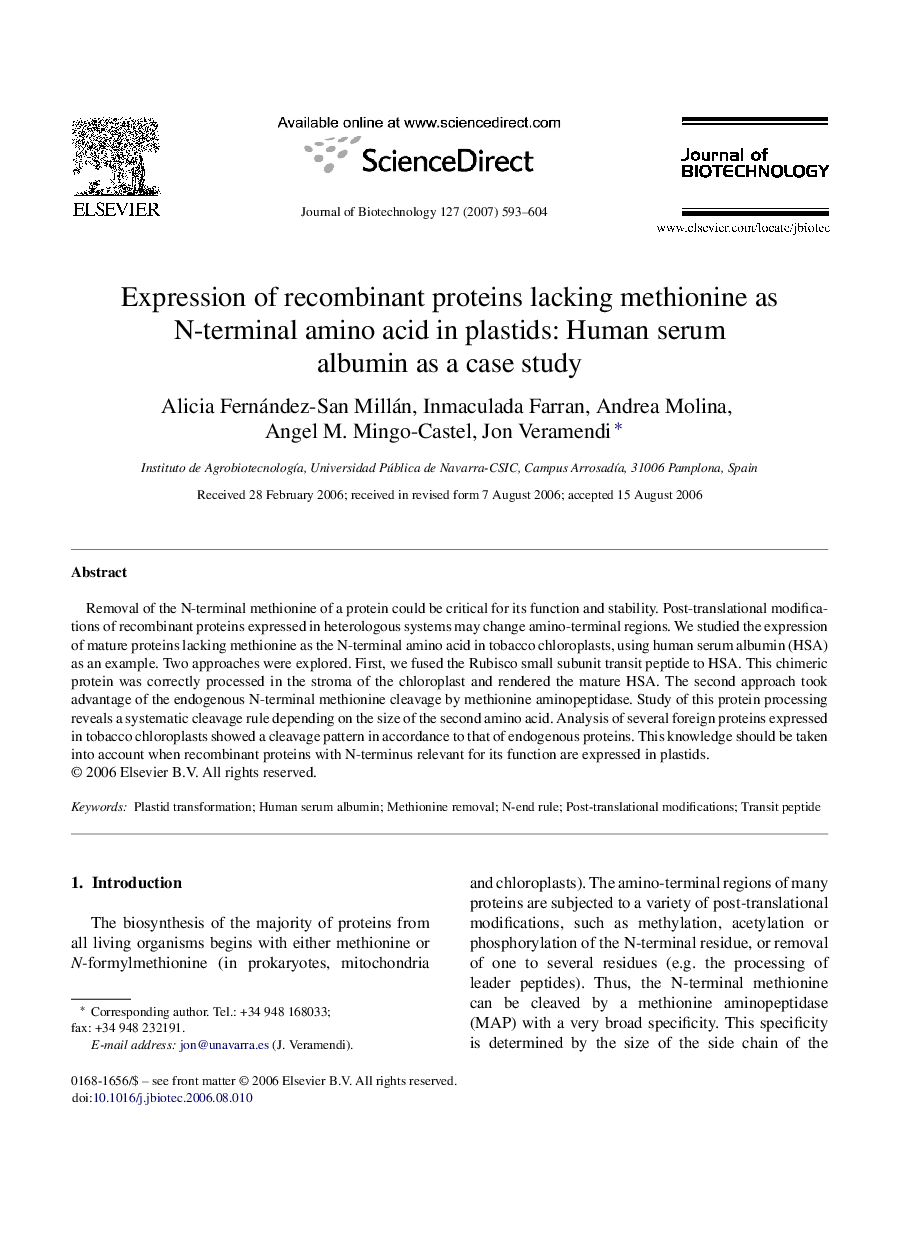| Article ID | Journal | Published Year | Pages | File Type |
|---|---|---|---|---|
| 25509 | Journal of Biotechnology | 2007 | 12 Pages |
Removal of the N-terminal methionine of a protein could be critical for its function and stability. Post-translational modifications of recombinant proteins expressed in heterologous systems may change amino-terminal regions. We studied the expression of mature proteins lacking methionine as the N-terminal amino acid in tobacco chloroplasts, using human serum albumin (HSA) as an example. Two approaches were explored. First, we fused the Rubisco small subunit transit peptide to HSA. This chimeric protein was correctly processed in the stroma of the chloroplast and rendered the mature HSA. The second approach took advantage of the endogenous N-terminal methionine cleavage by methionine aminopeptidase. Study of this protein processing reveals a systematic cleavage rule depending on the size of the second amino acid. Analysis of several foreign proteins expressed in tobacco chloroplasts showed a cleavage pattern in accordance to that of endogenous proteins. This knowledge should be taken into account when recombinant proteins with N-terminus relevant for its function are expressed in plastids.
